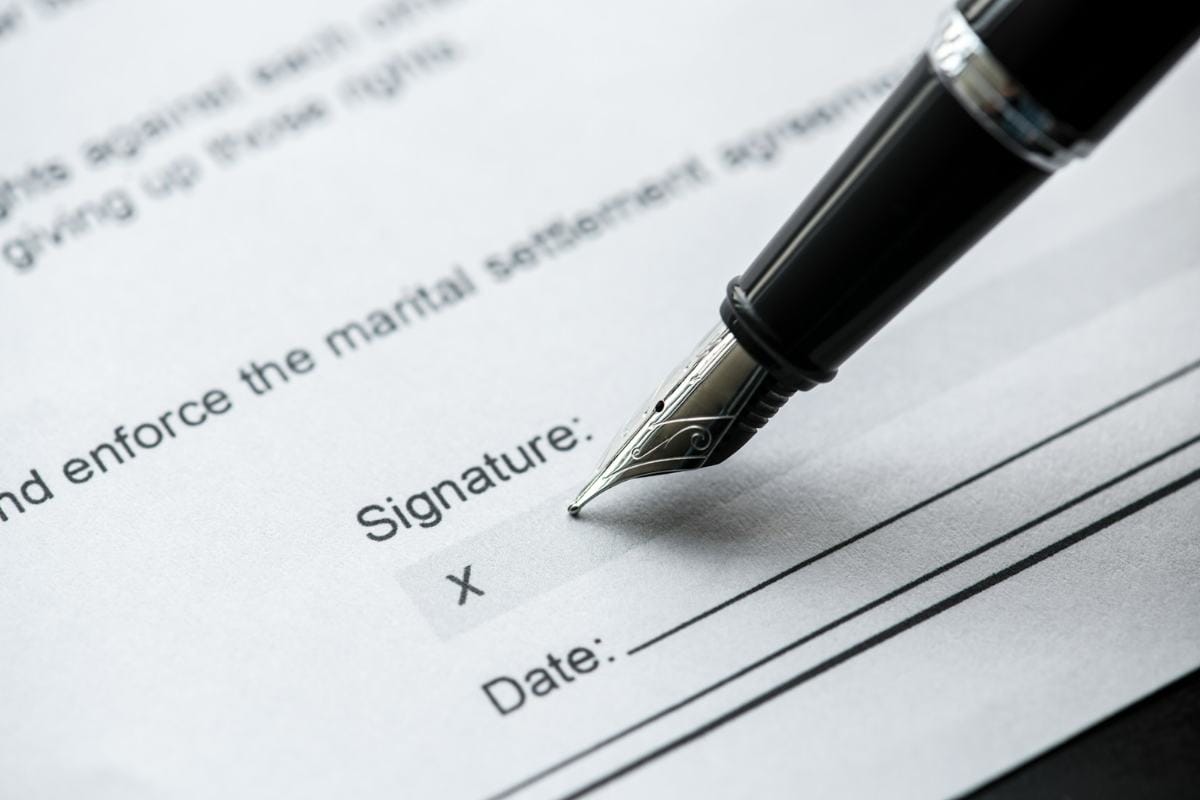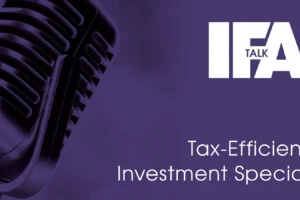“It is almost a decade since the ‘pension freedoms’ reforms announced by former chancellor George Osborne in his bombshell 2014 Budget took effect in the UK, fundamentally upending the retirement system and the income choices available to millions of Brits,” says Tom Selby, director of public policy at AJ Bell.
“That decision at a stroke opened up a whole new world of choice and flexibility to people accessing their retirement pot from age 55. The reforms have been hugely popular, enabling retirees to design an income plan that fits their lifestyle and placing responsibility for ensuring that pot lasts throughout their lifetime firmly on the shoulders of individuals.
“At the same time, the tax rules that applied to pensions on death were also overhauled, with the tax charge of up to 55% on undrawn pensions that had previously existed consigned to the scrapheap. Instead, new rules were introduced that meant it became possible to pass on your retirement pot completely tax-free if you died before age 75. If you died after age 75, any inherited pensions would be taxed in the same way as income. Chancellor Rachel Reeves has proposed undoing these reforms by bringing pensions into IHT from April 2027 – a hugely complicated process that will lead to substantial delays in paying money to beneficiaries.
“All of which means it is vital people accessing their retirement pot, particularly for the first time, take the time to consider how they do that, how much income they take and the tax implications of any decision. Ideally this complex landscape would be navigated with the help of a financial adviser, who can help you build a retirement plan that fits your circumstances and preferences.”
Ten key things you should consider when accessing your pension:
- If you’re accessing your pension for the first time, is now the right time to do it?
“You can access your ‘defined contribution’ (DC) retirement pot from age 55, with this minimum access age set to rise to 57 by 2028. When you access your pension for the first time, you can also get up to a quarter of your pot completely tax free (more on this later). In order to access your tax-free cash, you’ll need to choose a retirement income route for the remainder of your pot (again, more on this later).
“However, just because you can do something doesn’t necessarily mean you should – and there are very good reasons to hold off doing so if you can. Perhaps most importantly, the earlier you start taking an income, the longer that income will need to last – and the less opportunity your fund, including the tax-free cash entitlement, will have to enjoy long-term investment growth.
“To illustrate, let’s take someone with a £200,000 pension pot at age 55. If they decide to access their retirement pot as soon as they can, they could get £50,000 of tax-free cash, with the remaining £150,000 available to deliver a taxable income. If we assume they choose to keep their fund invested through drawdown (once again, more on this later) and enjoy investment growth of 4% per year after charges, they could take an annual income of around £7,600, with their fund exhausted by around their 90th birthday.
“If, however, they held off accessing their pension until age 65 and enjoyed 4% annual growth during that period and in retirement, they could generate around £74,000 of tax-free cash and enjoy an income of around £13,300 a year until age 90.”
- Which retirement income option should I go for?
“Whenever in life you choose to access your pension, to get your tax-free cash you will need to choose an income option for the rest of your fund.
“The most popular avenue is ‘drawdown’, whereby your pension remains invested and you take a flexible income to suit your needs. This gives you flexibility over how you take an income but requires you to be comfortable taking investment risk and having responsibility for managing your withdrawals sustainably.
“You can also choose to buy an ‘annuity’, an insurance product which pays a guaranteed income for life. These are generally more suitable for people who don’t want to take any investment risk and prioritise income security. If you go down this road, it’s important to shop around for the right product, because once you buy an annuity you can’t change your mind.
“The other main option is to take ad-hoc lump sums direct from your pension, with a quarter of each lump sum available tax-free. These are sometimes referred to in the jargon as ‘uncrystallised funds pension lump sums’ or UFPLS.
“It is also perfectly possible to combine these income options to suit your needs. For example, you could buy an annuity to pay your fixed costs and retain flexibility and the potential to enjoy long-term growth with the rest. Equally, you could aim to take a flexible income through drawdown in the early years of retirement and then buy an annuity when you’re a bit older and likely to get a better rate.”
- Have a plan for your tax-free cash
“As mentioned earlier, when you access your pension you can take up to a quarter of your pot tax-free. For most people, the maximum tax-free cash they can take over their lifetime is £268,275.
“Before taking your tax-free cash, make sure you have a plan for the money. If, for example, you take your full entitlement out and then just shove it in a bank account, the money will risk being eaten away by inflation over time.
“You can also choose to take your tax-free cash in chunks. For example, someone with a £100,000 pension pot who needs £5,000 of tax-free cash to pay off some credit card debt could choose to just take that amount and put £15,000 of their pot in drawdown. This would leave the remaining £80,000 – including the 25% tax-free cash entitlement attached to it – free to grow over the long-term.”
- Planning to keep paying into a pension? Watch out for the ‘money purchase annual allowance’
“One thing you need to be aware of when accessing taxable income flexibly from your pension for the first time is the impact it will have on your annual contribution limit or ‘annual allowance’. Usually, you can contribute up to £60,000 per year into your retirement pot tax-free, but if you flexibly access your pension, for example through drawdown or by taking an ad-hoc lump sum, your annual allowance drops to £10,000. Furthermore, you lose the ability to ‘carry forward’ unused annual allowances from the three prior tax years in the current tax year.
“So, if you are planning to keep contributing to your pension after accessing it, you should think carefully about the impact this annual allowance cut will have and consider alternative options. For example, if you just take your tax-free cash, you won’t trigger the money purchase annual allowance and will retain the full £60,000 allowance.”
- Planning to make large withdrawals? Consider the impact of income tax
“If you’re planning to access your pension flexibly using drawdown, you need to think carefully about the sustainability of your retirement income plan. If you take too much too soon, you’ll run the risk of exhausting your pot early and relying on the state pension to fund your retirement.
“Taking large withdrawals can also result in you paying more income tax than is necessary. For example, if someone with no other taxable income chose to take a £20,000 taxable withdrawal in 2024/25, they would pay 0% tax on the first £12,570 and 20% tax on the remaining £7,430, leaving a total income tax bill of £1,486.
“If, however, they took a £10,000 withdrawal in 2024/25 and a subsequent £10,000 withdrawal in 2025/26 and had no other taxable income in both tax years, they would pay no income tax at all as both withdrawals would be below their £12,570 personal allowance.”
- Choose your investments carefully and review as you approach accessing your pension
“As you approach retirement, you should review your investments to make sure you are comfortable with the risks you are taking and, crucially, ensure your investment strategy matches how you plan to access your pot. For those intending to use some or all of their fund to buy an annuity, the aim of the game in the years beforehand is usually to shift away from equities and towards bonds, which should effectively act as a ‘hedge’ against annuity price movements. You might already be in a fund which aims to ‘derisk’ towards annuity purchase but it’s worth checking.
“On the flip side, if you’re planning to stay invested while taking a flexible income through drawdown, you should check you aren’t currently sitting in a ‘lifestyling’ fund aimed at annuity purchase. The purpose of shifting to bonds ahead of annuity purchase is to hedge against annuity rate movements, but if you aren’t planning to buy an annuity, you will only hold one side of the hedge, leaving your fund exposed to any volatility that occurs in the bond market. We have seen in recent years, particularly following the 2022 mini-Budget, that bond markets can go up and down significantly in a short space of time, and generally long-term investors will want to spread their risks across different assets in different countries.
“For those who do opt for drawdown, you may also want to consider investments focused on generating an income in retirement, rather than those aimed at capital growth (which is the common approach when you’re saving for retirement). If you’re taking a regular income, you will likely also want to make sure you have a decent chunk of cash in your account ready to access for day-to-day spending.”
- Watch out for scammers
“When most people access their pension, they will either be moving into retirement and taking a regular income to fund their lifestyle or taking a chunk of money out for a specific purpose, such as paying off a mortgage. However, you need to be wary of scammers who may offer high risk, unregulated investment ‘opportunities’ which often promise sky high returns over short periods of time. Such offers will often come with exorbitant fees and, in the worst-case scenario, will simply be out-and-out fraud, with a criminal taking your hard-earned retirement pot and scarpering. What’s more, by withdrawing a large amount from your pension, you will have taken it from an environment where it can grow tax-free and enjoys the protection of the Financial Services Compensation Scheme (FSCS) protection of up to £85,000 to an unregulated Wild West where you may have little or no protection.
There are a number of simple things you can do to protect yourself from fraudsters:
- Be suspicious of unsolicited calls, texts, emails or unregulated offers on social media: Scams often start with a call, text or email out of the blue offering ‘help with’ or perhaps a ‘review of’ your pensions or investments. Social media is also an increasingly lucrative hunting ground for fraudsters. To be safe, if someone you don’t know contacts you about your pension or investments – or indeed your finances in general – do not engage with them. If you believe someone is trying to scam you, report them to Action Fraud to help protect other investors.
- Be extremely wary of anyone promising large, guaranteed returns or early access to your pension: Another tell-tale sign of a scam is the promise of huge, guaranteed investment returns, often over relatively short spaces of time. These investment ‘offers’ take many weird and wonderful forms, while the rise in popularity of cryptocurrencies has also been an obvious target for financial fraudsters. In addition, anyone claiming they can facilitate early access to your pension is almost certainly a fraudster.
- Only deal with regulated companies and individuals: At the heart of scams are often unregulated ‘introducers’ peddling unregulated investments. While there is nothing wrong with investing in unregulated assets, where fraud occurs these often turn out to be vastly overhyped or entirely fictitious. Even where an unregulated investment is real, if you suffer losses through misselling you will not qualify for FSCS protection.
- Do your due diligence: Scammers’ tactics have become more sophisticated in recent years, with ‘clone’ scams – where fraudsters impersonate a real firm to con you out of your cash – increasingly common. You can cross-check the phone number or email address provided by someone who contacts you with the FCA register to make sure they are who they say they are.
- Don’t be rushed and if in doubt, speak to a regulated financial adviser: High-pressure sales tactics – such as telling someone they need to invest by a set deadline – are a classic scam tactic and should immediately set off alarm bells. Do not be rushed into a decision you aren’t completely happy with. If you want help with your options or are unsure what to do, consider speaking to a regulated financial adviser or visit government-backed retirement guidance service Pension Wise. The FCA’s ‘ScamSmart’ website is another great resource to keep up-to-date on the latest tactics being deployed by fraudsters.”
- What happens to your retirement pot when you die?
“As things stand today, any unspent pensions can be inherited by your nominated beneficiaries without Inheritance Tax (IHT) charges applying. If you were to die before the age of 75, then any income taken from your pension benefits by your beneficiaries would be free of income tax. Any lump sum they take will also usually be income tax free, as long as it doesn’t exceed something called your ‘lump sum and death benefit allowance’, which is the total amount of tax-free lump sums paid out in your life and on death. This allowance is usually set at £1,073,100.
“If you were to die over the age of 75, then income tax would be due on any pension income or lump sum taken by your beneficiaries.
“These rules make pensions one of the most tax efficient products available for those prioritising passing money onto loved ones when they die. However, at the Autumn Budget last year, chancellor Rachel Reeves announced plans to include unspent pensions in people’s estates when determining whether there is any IHT to pay.
“There are some things you can do ahead of April 2027 to potentially limit your beneficiaries’ tax bills, but before doing that there are a few factors to consider.
“First, these reforms are only being consulted on at this stage – we don’t have final rules and legislation, and the government has faced significant opposition to using IHT as the mechanism for taxing pensions on death. So, it is possible there will be changes to the proposed rules which may impact on any decision you take.
“Second – and this is really crucial – most people will not have to pay IHT at all. No IHT is applied to assets under an estate’s ‘nil rate band’ of £325,000. People’s estates may also be able to benefit from the ‘residence nil rate band’ (RNRB). This is £175,000 and applies to a property left to a direct descendant. If both these allowances are passed between a married couple their estates could leave a combined total of £1 million tax free. Furthermore, assets inherited by a spouse or civil partner are exempt from IHT. So before taking action based on fear of IHT, make sure at the very least IHT could actually affect you.
“Third, and slightly grimly, if you die before April 2027, your beneficiaries will be able to inherit your pension under the current rules, meaning IHT will not apply.
“If having considered all that you’re still looking for ways to mitigate a potential IHT liability on your pension assets, you could consider gifting to loved ones while you’re alive. However, it’s worth speaking to a regulated financial adviser first to make sure this is in your best interests.”
- Check how much state pension you will receive
“Away from your private pension, the retirement income foundation most people’s later years will be built upon will be the state pension. The full new state pension is worth £221.20 per week in 2024/25 and will rise to £230.25 per week from April this year. The current state pension age is 66, with plans in place for increases to age 67 by 2028 and age 68 by 2046.
“You need a 35-year National Insurance (NI) record to qualify for the full state pension. As you approach retirement, it’s worth checking your NI record to make sure you don’t have any gaps that could be filled, either for free by claiming NI credits or by paying voluntary NI contributions.”
- Consider ISAs and any other assets, including any defined benefit (DB) entitlements, before making a decision
“When deciding how and when to access your retirement pot, the value of other assets will be a significant consideration for lots of people. If you have a significant defined benefit (DB) pension, for example, you might be comfortable taking larger withdrawals from any DC pensions you have. Equally, those with ISAs or property investments will need to factor those into their retirement income planning.”















